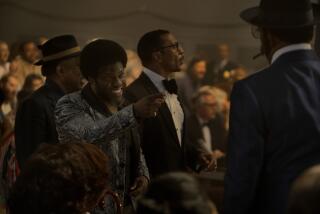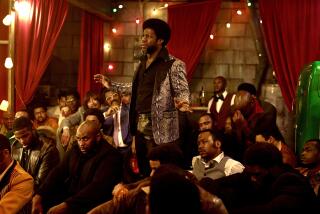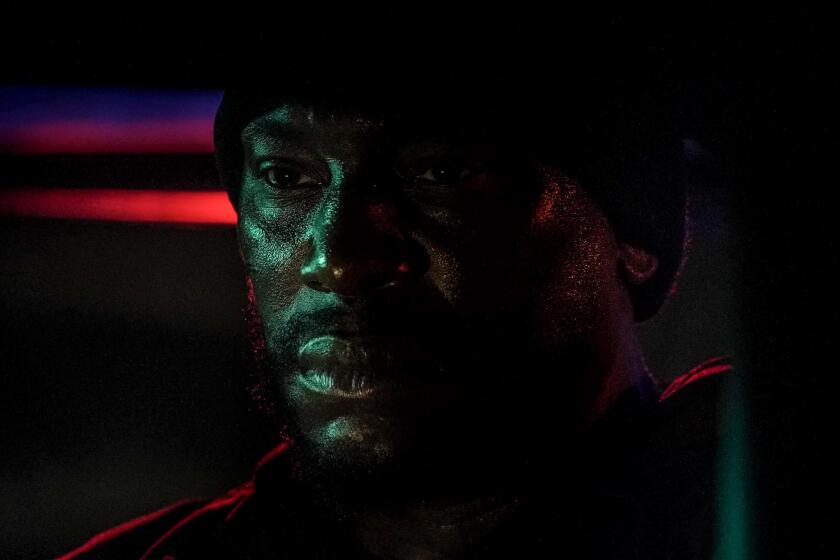A Second Look: ‘The Night of the Hunter’
In 1955, when “The Night of the Hunter” opened to mixed reviews and poor box office, the film was already a throwback: steeped in the luxuriant gloom of German Expressionism and the heightened poetics of D.W. Griffith (and set to boot in rural Depression-era America). But in reaching back to the primordial enchantment and promise of silent-era cinema, director Charles Laughton created something timeless — “a nightmarish sort of Mother Goose tale,” as he put it, but also an American Gothic variation on an Old Testament parable.
Released this week in a two-disc DVD edition from the Criterion Collection (in both standard-definition and high-definition Blu-ray formats), “The Night of the Hunter” was famously the only film Laughton directed. He was in his mid-50s at the time, a British stage star who became a flamboyant character actor in Hollywood. He won an Academy Award for “The Private Life of Henry VIII” (1933), played his share of memorable monsters (Quasimodo, Dr. Moreau) and, before making his film directing debut, had earned acclaim as a theater director.
Laughton’s manager acquired the rights to “The Night of the Hunter,” a novel by first-time author Davis Grubb, mere months before it became a bestseller in 1954. One of Laughton’s first moves was to approach Robert Mitchum, among film noir’s most iconic tough guys, to play the embodiment of charismatic evil at the dark heart of the story. Mitchum’s Harry Powell has since become one of film history’s most indelible villains: a psychotic preacher, packing a switchblade and spewing fire and brimstone, seducing and terrorizing a young widow ( Shelley Winters) and her two children, in possession of their dead father’s stolen loot.
The screenplay was assigned to James Agee, the journalist who, with photographer Walker Evans, had produced a vivid paean to Depression-era tenant farmers in “Let Us Now Praise Famous Men.” Agee had also been a film critic in the ‘40s, and he co-wrote the Oscar-nominated screenplay for John Huston’s “The African Queen.”
The standard line on Agee’s participation in “The Night of the Hunter” is that the writer, struggling with alcoholism, turned in an unfilmable doorstop of a screenplay. But Michael Sragow, editor of the Library of America’s Agee anthologies, writing in the Criterion booklet, makes a persuasive case for Agee’s contributions, citing the film’s poetic intensity and psychological complexity. (Jeffrey Couchman, author of the 2009 book “‘The Night of the Hunter’: A Biography of a Film,” draws similar conclusions.) Laughton, who cut Agee’s overambitious script to a manageable scale, also worked closely with Grubb, who provided sketches of several scenes in his novel.
The cinematography, at once sensuous and austere, is by Stanley Cortez, who also worked with Orson Welles and Samuel Fuller. (The Criterion supplements include an archival interview with Cortez, new interviews with scholars and authors, as well as a 21/2-hour making-of, pieced together from outtakes and rushes.) To watch “The Night of the Hunter” is to have some of its images forever imprinted on one’s mind: Winters’ character dead at the bottom of the river, her hair rippling in the current like seaweed; Mitchum on horseback in silhouette, seen from afar; the escaped children’s moonlit, downstream drift past a woodland menagerie.
Early in the film, Mitchum’s preacher puts on a good-versus-evil pantomime for the kids, locking together his hands with their L-O-V-E and H-A-T-E knuckle tattoos. An elemental fable of sin and salvation, a study in light and shadow, “The Night of the Hunter” is built on stark dualities. It applies a child’s-eye view to a fallen adult world. It juxtaposes the crazed religiosity of Mitchum’s false prophet with the biblical benevolence of Lillian Gish’s maternal shepherdess, tending to a flock of suffering little children. And it combines a folkloric lyricism that is deeply American with a primal darkness profoundly out of sync with the self-image of Eisenhower-era America, which may account for the film’s failure at the time.
“The Night of the Hunter” has grown in stature since, recuperated as a cult favorite and eventually acknowledged as a masterpiece, a movie with many descendants (from David Lynch to Terrence Malick) but few real precedents. Laughton, who died in 1962, was so crushed by the disappointment that he swore off directing — a tragedy that only reinforces his film’s aura of singularity.
More to Read
Only good movies
Get the Indie Focus newsletter, Mark Olsen's weekly guide to the world of cinema.
You may occasionally receive promotional content from the Los Angeles Times.










